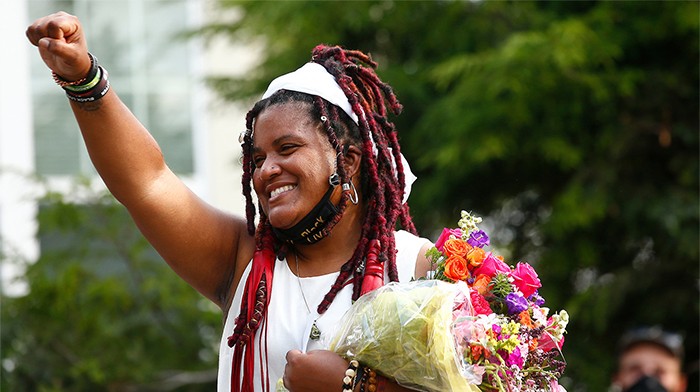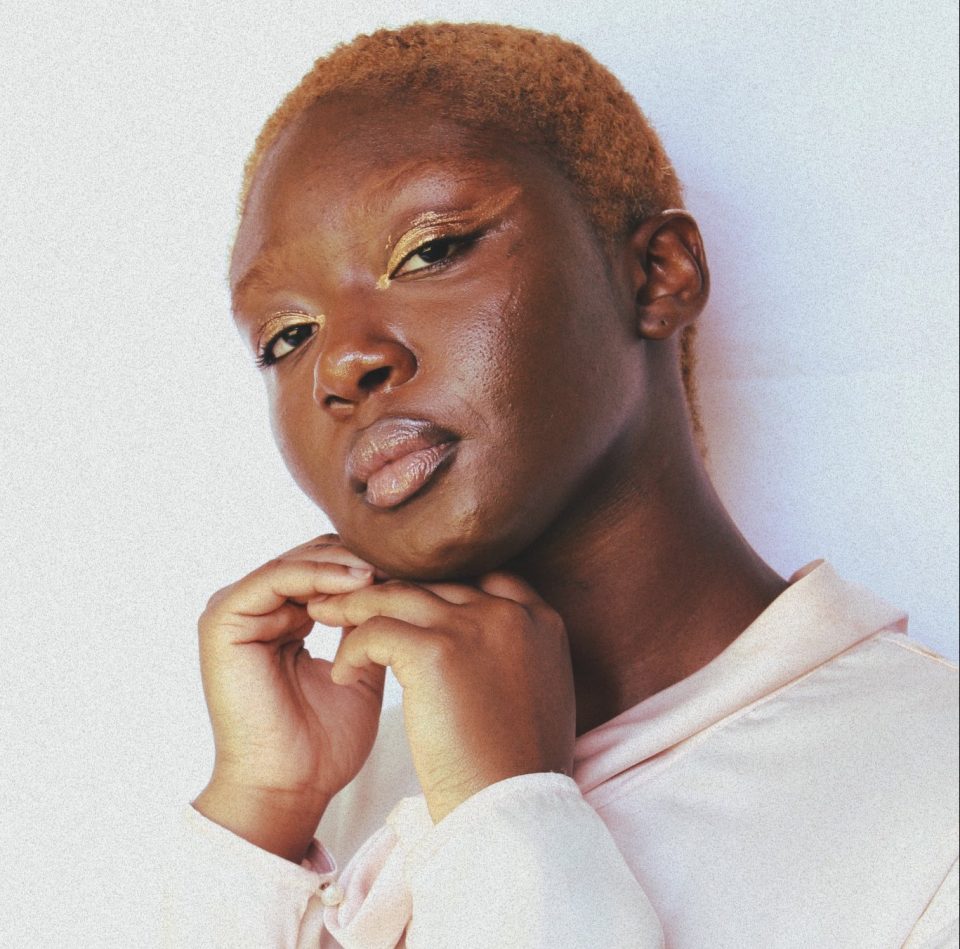On October 4, 2018, Marquis Brown, a Black member of the Duquesne University football team, was pronounced dead after he allegedly jumped from the 16th floor of his dorm building as police officers watched.
Four months later, police reported the findings of their investigation into Brown’s death, which concluded that his apparent suicide had been related to the marijuana in his system. Dannielle Brown, Marquis’s mother, thought that the results of the investigation were unsatisfactory and she did not believe that weed had been the cause of her son’s death, especially when four eyewitnesses had been present. She demanded more answers and went on a hunger strike to protest.
“To come back and say it was weed in his system, but not to explain how weed in his system could connect the dots to my son going out of a 16-floor window. Um, his investigation pretty much told me nothing,” Dannielle said. “I know my son well, who was raised well. Never been in trouble. Went to the best schools. Travelled the world. Had a diverse group of friends. Never spoke of depression.”
Wow!!!! The reality is my demands will not be fully met. However Trauma~Triumph. Excited about the work the Marquis Jaylen Brown Foundation will do to make a difference and honor my son legacy✊🏾✊✊🏿✊🏻
— DannieX2Joys (@danniebrwn) February 28, 2021
Rather than meet Dannielle’s demands of a private investigation, Duquesne University failed to acknowledge the incident in a satisfactory manner. In July 2020, the university issued a statement.
“We believe the facts will show that those officers acted appropriately and reasonably, which is consistent with the findings of the City of Pittsburgh police report,” the release stated.
On February 25, 2021, 236 days into her hunger strike, Dannielle was hospitalized as a result of health complications that included seizures and migraines. She was not deterred by her hospitalization and continued to seek accountability from the university and the officers. Her demands included calls for an independent investigation into her son’s death, a mandate for Duquesne University police to wear body cameras and train campus officers to properly handle mental health crises.
Day 236 Hunger Strike. Yes I am scared. I know the consequences. I was resolved since July 4th, 2020. Has any women/man lasted this long? For the mothers voices & the students safety? I am social justice knocking at the door✊🏾✊🏻✊✊🏿 pic.twitter.com/qi8mL6IjE0
— DannieX2Joys (@danniebrwn) February 26, 2021
Dannielle bears the torch for many mothers of Black men who have been victims to the legal system’s shortcomings. They are pushed not only to unimaginable grief but also to lifelong advocacy, in many cases to the detriment of their own health. Sybrina Fulton, Trayvon Martin’s mother, is another example of a Black mother thrust towards activism after the murder of her son in 2012.
“When this tragedy happened, I found myself in a dark, dark space that I wasn’t familiar with, and I didn’t know how to handle it. And I listened to people tell me how strong I was, but I didn’t feel strong at all. I felt weak. I felt hopeless. I felt helpless,” Fulton told the Guardian.
Wanda Cooper-Jones, Ahmaud Arbery’s mother, suffered a similar fate when she learned that her son was shot and killed. Now, she says, each day in the past year is a reminder of who was lost.
“I think before I was in — numb. I was in a state of just being numb. As the days have passed, the numbness has left and I’m really — it’s very painful. Very painful,” Cooper-Jones told NBC.
Too often, Black mothers are unwritten from history and once their loved one’s story loses traction, the public’s outward expression of sympathy goes with it. However, these women, who include Dannielle Brown, Sybrina Fulton, and Wanda Cooper-Jones, are the victims of the brutality, as well. After their loved ones pass away, they are left to grieve and pick up the pieces of a broken system.
Nevertheless, with Danielle’s persistence as she approaches 250 days of refusing to eat, the university is left with two options: to either meet Dannielle’s demands or to allow her to die.
“At this point, it should be frighteningly obvious to everyone that Dannielle Brown’s hunger strike reaches one of two conclusions — Duquesne University acquiesces to her demands or she dies,” Caitlyn Hunter, a doctoral student at Duquesne University, wrote in the Pittsburgh Current.
Cover photo by Jared Murphy via Pittsburgh City Paper





